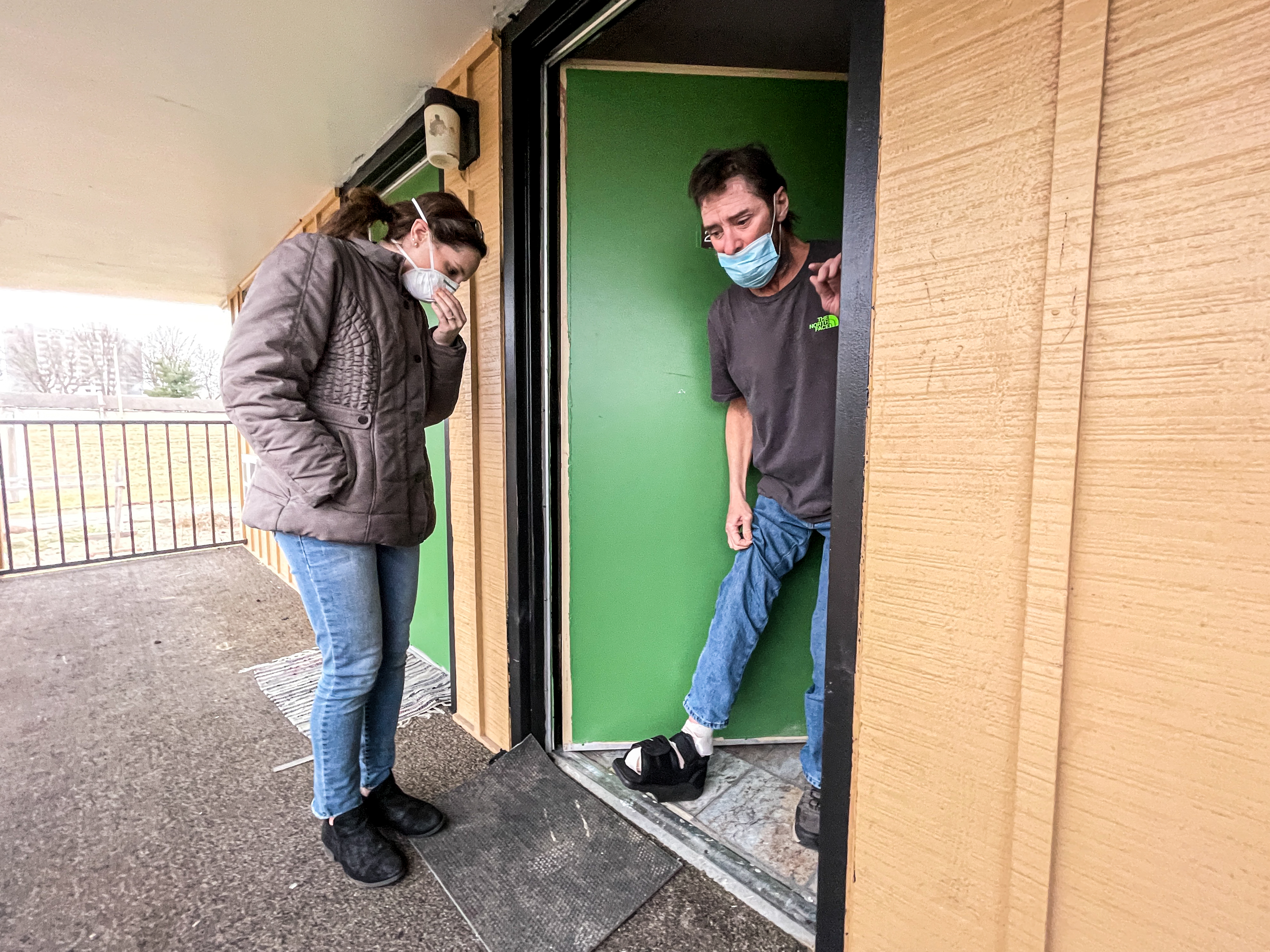Imagine being sick with COVID-19, but not sick enough to be hospitalized and having nowhere to go except the streets or a tent in the woods. Imagine being released from the hospital on oxygen with long-haul COVID and also having multiple underlying health conditions, as many homeless people have, in the middle of winter.
For the first year and a half of the pandemic, there were very few quarantine or medical respite options for homeless people who had COVID-19 or were exposed to the virus in Springfield.
Before Eden Village II opened in late 2021, the “tiny house” community set aside five of the unoccupied homes for COVID-positive people. In the summer of 2020, the Office of Emergency Management had plans to use the former Doling school building as a quarantine shelter but was never able to staff it.
Then in September of 2021 — as the number of COVID-positive homeless people began to rise — Catholic Charities of Southern Missouri partnered with the Greene County Office of Emergency Management to create a quarantine shelter within a motel off north Glenstone Avenue.
To date, at least 55 rooms have been rented for this purpose. Most were for individuals, but there have been some couples and at least one family.

(Photo by John Farmer de la Torre/CCSOMO)
The motel sheltering program has been mostly funded with FEMA funds, thanks to the Greene County Commission, explained Catholic Charities Executive Director Maura Taylor.
The program was at risk of losing the FEMA funding last month, Taylor said, but Community Foundation of the Ozarks, Healthy Blue Missouri and the City of Springfield committed to helping if that happened, as well as an anonymous donor. Taylor learned a few days ago that the program would not be losing FEMA funding.
People must be referred to the program from the hospitals, the shelters or One Door. (One Door is the central point of entry for coordinated intake, assessment and referrals for housing and shelter services.)
Taylor said the majority of the people referred to the program are coming from the hospitals.
Catholic Charities modeled the program after its Rancho Emergency Shelter and Housing Program, which is housed in the former Rancho Motel in north Springfield. The Rancho houses families and homeless women in need of medical respite.
Hot meals are provided and the rooms have stocked refrigerators. Catholic Charities has a nurse on staff to monitor the residents.
“She’s not providing health care, but she monitors their wellness and speaks with the hospitals on referrals,” Taylor said. “We’re 24/7 staffed.”
There are cameras on the outside of the building, so staff can see if anyone breaks quarantine or tries to sneak someone into their room.
During the height of the Omicron surge, Taylor said the program was averaging four to five referrals from the hospital a day.
Many of the unsheltered in Springfield are not vaccinated, despite many efforts to educate and vaccinate the homeless community, Taylor said.
“Many of them are chronically homeless, been on the streets for a long time,” she said. “They have major health issues anyway. So them being sick with COVID or the risk of them going back to the communities where they’re living and exposing others, as well as going to the cold weather shelters or other shelters if they’re COVID positive puts an even greater number of people at risk.
“When they’re living in these camps, sharing tents or going to cold weather shelters,” she continued, “this Omicron variant is very contagious.”
The program is set to continue through March, Taylor said. It’s possible FEMA will continue to fund it longer if there is a need.

